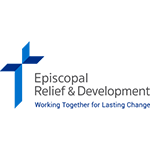Strengthening an Integrated Early Childhood Development Program
HIGHLIGHTS
- There are opportunities to help families—particularly those in rural communities —better support children with the nourishment, stimulation, and security necessary for their brains to fully develop.
- Moments That Matter (MTM) ® is an integrated early childhood development program that seeks to support caregivers and communities to help children reach their full development potential.
- ideas42 is supporting MTM to apply behavioral insights to their learning and decision-making about the program and to build new tools for program staff and frontline.
The Challenge
The period between birth and age three is critical for a child’s healthy growth and development. During this time, nurturing care that fosters good health and nutrition, early learning and play, and quality interactions between caregivers and children is critical in the young child’s life. These actions, combined with safety and security, economic stability, and other positive environmental factors establish the building blocks for a child’s full development—including educational achievement, economic productivity, health, strong communities, and successful parenting in the future.
However, in many rural communities around the world, caregivers face immense challenges that limit opportunities for early childhood development (ECD), including economic insecurity, a reliance on labor and time-intensive subsistence farming, the impacts of HIV/AIDS and other health challenges, and social and gender norms that influence parenting practices. There are opportunities to help families promote optimal ECD so that children receive the nourishment, stimulation, and security necessary to fully develop.
Our Approach
Moments That Matter (MTM) ® is an integrated early childhood development program partnership of Episcopal Relief & Development and its partners that targets caregiving environments, primary caregivers, and children themselves to help children reach their full development potential. Since 2021, ideas42 has supported Episcopal Relief & Development and its partners to apply a behavioral lens to its efforts to monitor, evaluate, and iteratively improve MTM to enhance its value for children, families, and communities.
Our work with the MTM Program has included:
- Collaboratively building a behavior-centered theory of change that captures how the complex and multifaceted program aims to achieve its goals for children, families, and communities.
- Leveraging existing qualitative data on the program to strengthen understanding of its behavioral dimensions.
- Guiding MTM stakeholders to identify program adjustments and enhancements to improve alignment with ECD sector best practices and respond to the behavioral realities and challenges of program implementation;
- Designing new tools and materials to be integrated into MTM to:
- Strengthen referrals to other health and psychosocial support services for children and caregivers.
- Boost motivation and commitment of local leaders to support the program and advocate for early childhood development and nurturing care.
- Support program volunteers who lead support groups and conduct home visits with materials to help participants translate knowledge and intentions related to ECD and nurturing care into practice within their families.
-
Crafting a change management strategy and related materials for rolling out new tools and approaches across MTM that turns a behavioral lens back on program implementers and other stakeholders to anticipate and respond to the challenges likely to impede successful implementation.
Takeaway
MTM is an ambitious, multi-faceted program that aims to simultaneously tackle the broad range of needs that hold back vulnerable families from supporting their children to reach their full potential. Unpacking the details of the many actors (and actions) involved in building skills, connecting families to resources, and generating social change opens up many opportunities to strengthen the value of the program through behavioral optimization.
A behavioral lens has guided Episcopal Relief & Development and its partners to make choices about where to invest resources and build new tools for the frontline volunteers and community leaders who carry out program activities. It has also enabled them to identify and address the behavioral challenges associated with changing a large and complex program. Ultimately, the solutions we built together will support caregivers with the skills, confidence, and resources they need to help their children thrive.
Interested in our work applying behavioral science to global health? Email gh@ideas42.org or tweet at @ideas42 to join the conversation.
Partners








